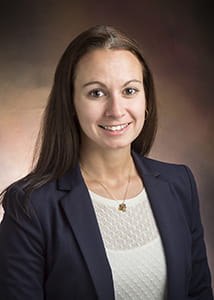
7/5/2023
PITTSBURGH — Children taking a prescription stimulant to manage symptoms of attention deficit hyperactivity disorder (ADHD) do not have more substance use or substance use disorder (SUD) as adolescents or young adults, according to a new study by researchers at the University of Pittsburgh School of Medicine.
Published today in JAMA Psychiatry, the study may provide some reassurance to parents and clinicians who may be hesitant to prescribe ADHD stimulant medications for fear that they may lay the groundwork for future substance use.
“Stimulants are the first-line treatment recommended for most individuals with ADHD — the drug class is an evidence-based treatment with few side effects,” said Brooke Molina, Ph.D., professor of psychiatry, psychology and pediatrics at Pitt. “Because stimulant medications are classified by the Drug Enforcement Administration as schedule two substances with the potential for misuse, many people fear that harmful substance use could result.”
 ADHD is a neurobehavioral condition marked by chronic patterns of inattention, hyperactivity or impulsivity, or a combination of the three, that affects a person’s day-to-day functioning. Although ADHD can be managed with medication and other therapeutic approaches, it is a chronic condition that must be monitored throughout an individual’s life.
ADHD is a neurobehavioral condition marked by chronic patterns of inattention, hyperactivity or impulsivity, or a combination of the three, that affects a person’s day-to-day functioning. Although ADHD can be managed with medication and other therapeutic approaches, it is a chronic condition that must be monitored throughout an individual’s life.
Molina and her colleagues assessed patients with ADHD over a 16-year period from childhood through adolescence to early adulthood to see if there was any association between stimulant treatment and subsequent substance use. The study conducted at Pitt is among the first to address the relationship between childhood use of prescription stimulants and later SUD by accounting for dozens of demographic, clinical and psychosocial factors that may predispose an individual to treatment and substance use.
“Our study not only accounted for age, but also used a statistical method that adjusted over time for the many characteristics that may distinguish treated from non-treated individuals,” said study co-author Traci Kennedy, Ph.D., assistant professor of psychiatry at Pitt. “Considering these factors allowed us to more accurately test the relationship between stimulants and substance use.”
 While other studies have sought to uncover and define a possible connection between prescription stimulant use for ADHD and SUD, the association between the two has remained controversial. The results of some studies suggested a protective effect of prescription stimulant use on the risk of having SUD later in life, while others failed to find an association.
While other studies have sought to uncover and define a possible connection between prescription stimulant use for ADHD and SUD, the association between the two has remained controversial. The results of some studies suggested a protective effect of prescription stimulant use on the risk of having SUD later in life, while others failed to find an association.
When factoring in age and other time-varying characteristics, such as household income, behavior problems and parental support, Pitt researchers found no evidence that stimulant treatment in childhood provided protection against developing a SUD for adolescents or young adults with ADHD. However, researchers likewise did not find an association between stimulant use during childhood and increased substance misuse in the future.
While some study participants self-reported an increase over time in heavy drinking, marijuana use, daily cigarette smoking and using other substances, an association with age was also found for stimulant treatment, with older participants being less likely to continue taking medication. When these trends were paired with rigorous statistical analysis, results provided no evidence that prolonged stimulant use is associated with reduced or increased risk for SUD.
“We hope the results of this study will help educate providers and patients,” Molina said. “By understanding that stimulant medication initially prescribed in childhood is not linked to harmful levels of substance use, I anticipate that parents’ and patients’ fears will be alleviated.”
Pitt researchers plan to study individuals who were first diagnosed with ADHD and treated with stimulants in adulthood. The study aims to learn if there are differences in the characteristics and outcomes of these adults compared to people who were diagnosed and first treated with stimulants in childhood.
This research was conducted as part of a randomized clinical trial in cooperative agreement with the National Institute of Mental Health and further supported by National Institute on Drug Abuse (grant DA039881). The content is solely the responsibility of the authors and does not necessarily represent the official views of the National Institutes of Health.
Other authors of the study include Andrea Howard, Ph.D., of Carleton University, Canada; James Swanson, Ph.D., and Annamarie Stehli, M.P.H., both of the University of California, Irvine; L. Eugene Arnold, M.D., of The Ohio State University; John Mitchell, Ph.D., of Duke University; Edward Kennedy, Ph.D., of Carnegie Mellon University; Jeffery Epstein, Ph.D., of the University of Cincinnati; Lily Hechtman, M.D., of McGill University; Stephen Hinshaw, Ph.D., of the University of California, Berkley; and Benedetto Vitello, M.D., of the University of Turin, Italy.
PHOTO DETAILS: (click images for high-res versions)
CREDIT: Brooke Molina
CAPTION: Brooke Molina, Ph.D.
CREDIT: Children's Hospital of Philadelphia
CAPTION: Traci Kennedy, Ph.D.
















